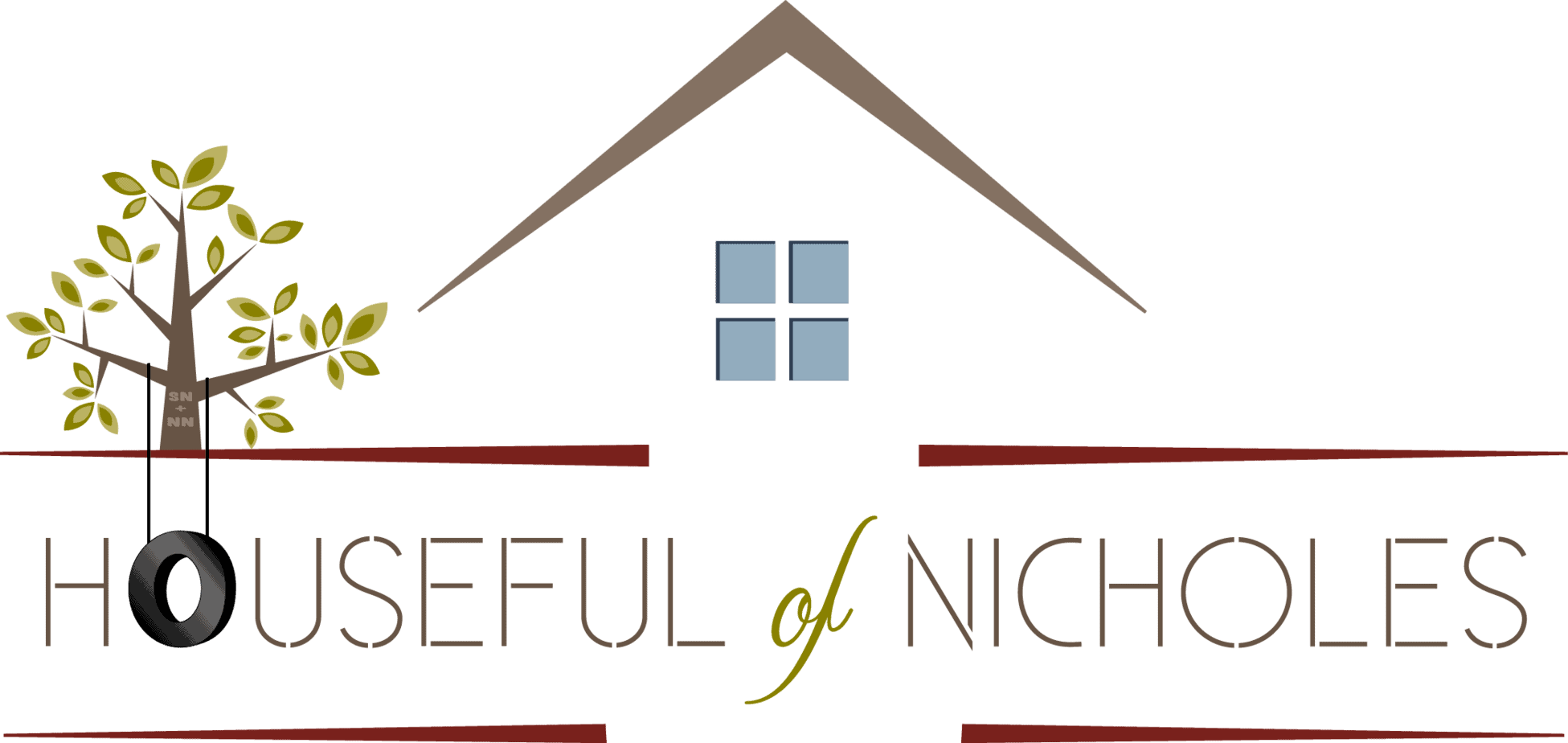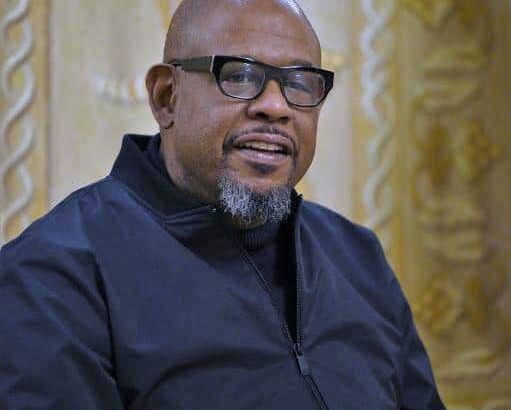I'm not sure when I was first introduced to the quiet fortitude that is Forest Whitaker. Given that he is an Academy Award winning actor, he'd be well within his rights to demand the ovation that we gave him. His entire thespian resume is amazing alone, but being in his presence for fifteen minutes brings a calm unlike any I've ever seen, and it was a marvel to behold. He walks into the room, clothed completely in black and he looks around in surprise as the room erupts into cheers. He seems to embody every character that he has ever played, lowered head and humility that you don't expect from Hollywood royalty such as him. The streaks of grey give away the wisdom that he has brought to many of his characters, and signals the role that he plays in Black Panther.
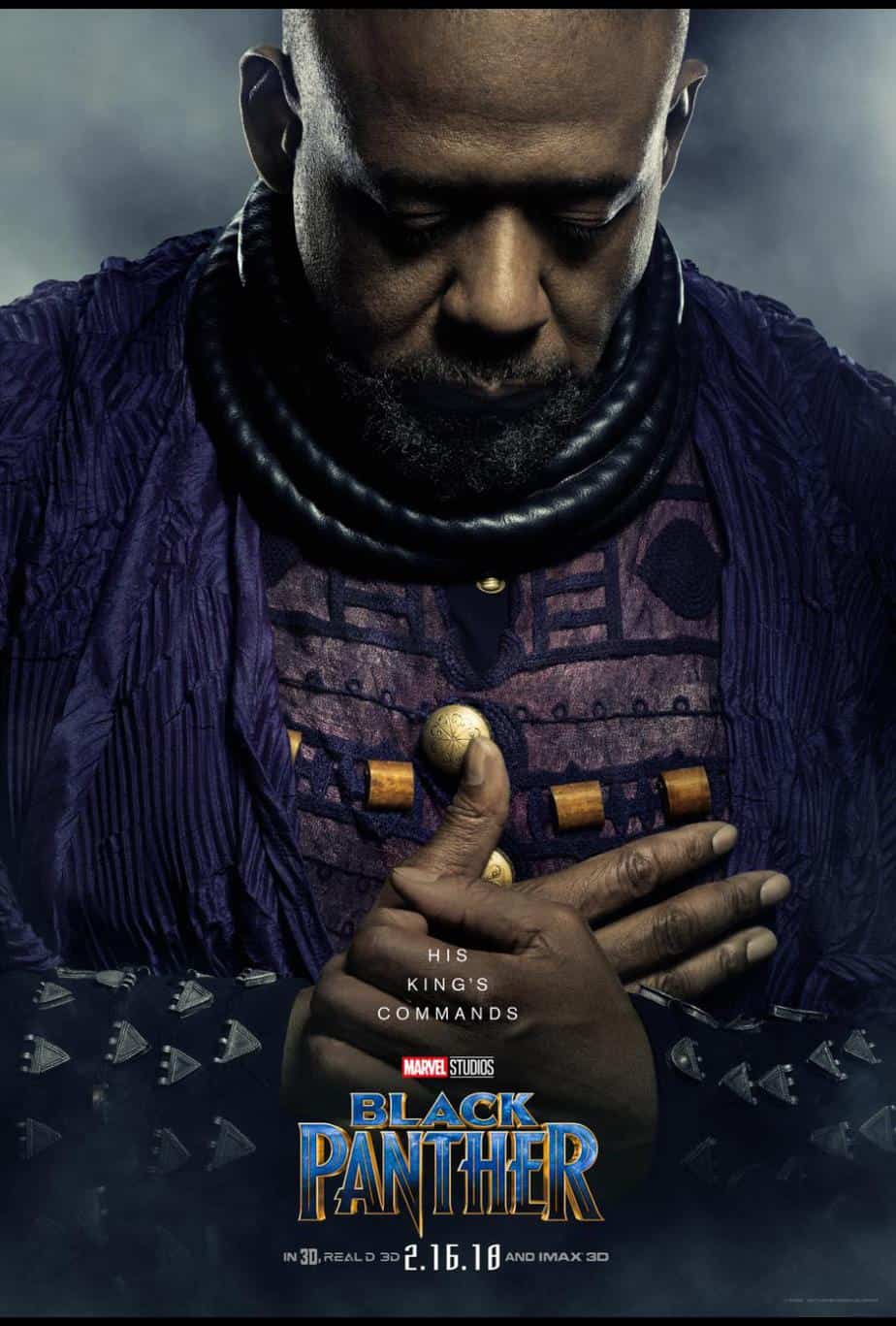
Whitaker is cast as Zuri, the sage of Wakanda. He is the calm for King T'Challa, much like Whitaker's real life persona.
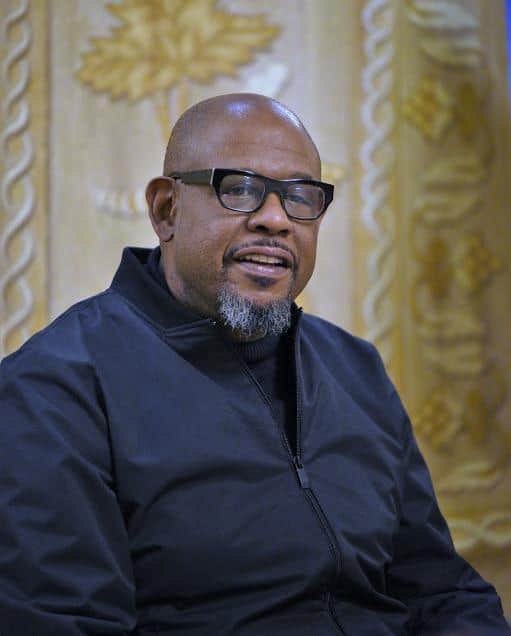
Forest Whitaker (FW) : Hi. Hey, everybody.
Q : I remember you from Fast Times at Ridgemont High.
FW : That's my first movie. Mm-hmm. Yeah.
Q : You master quiet performances better than anybody else. You always leave a big impression.
FW : Yeah, I don't know, I think it's just like, trying to have the right thoughts and internal life when all of that's going on. And you should, hopefully, the audience will be able to feel what I'm thinking, and what's going on inside, you know. That's kind of what I do, just to figure out what I feel, what I think.
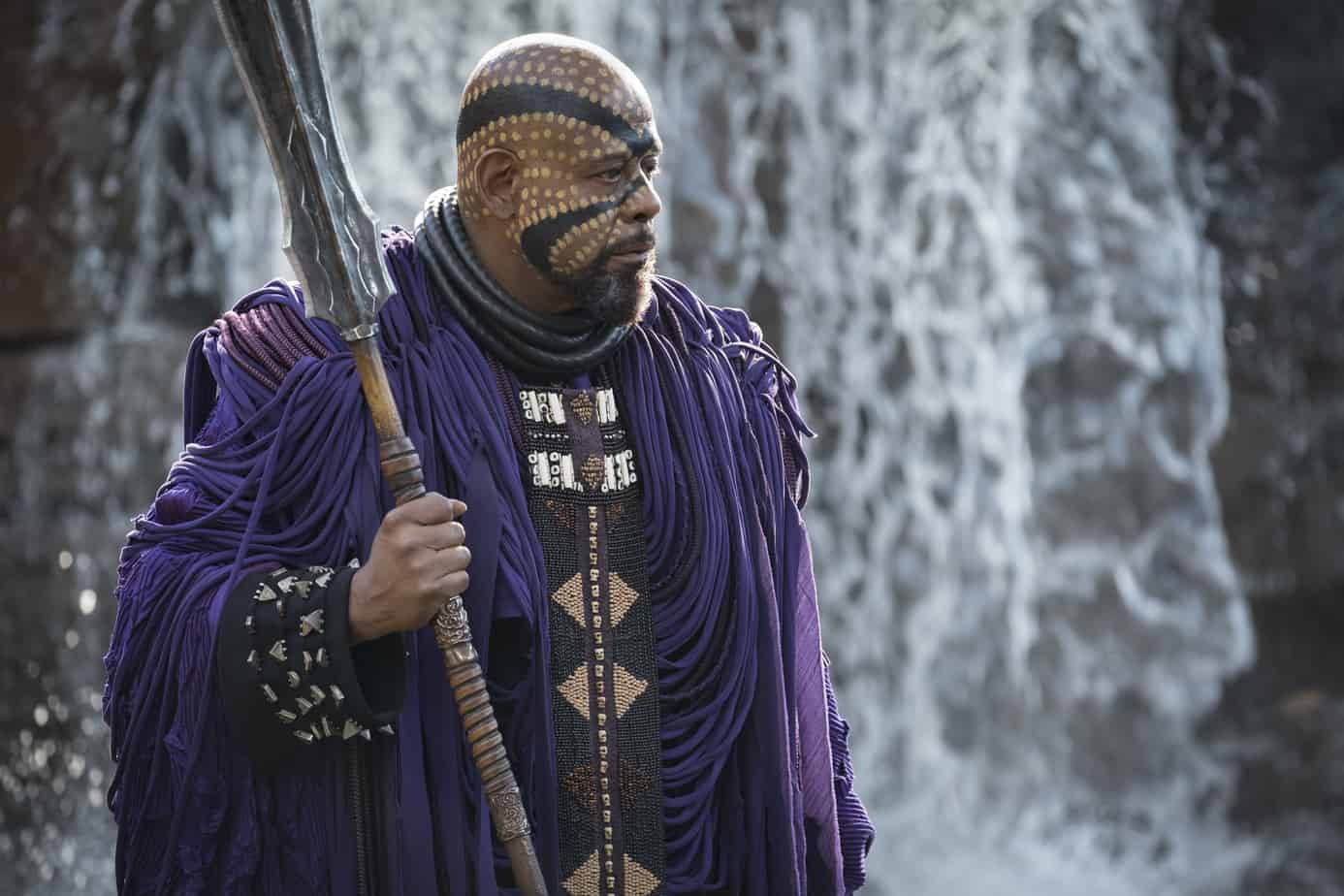
Marvel Studios' BLACK PANTHER..Zuri (Forest Whitaker)..Photo: Matt Kennedy..©Marvel Studios 2018
Q : What was it like, working on your first Marvel movie?
FW : It was exciting. Because I remember when we were at the Wakanda Falls -- it was the Warrior Falls -- it's so overwhelming. Because it felt like this hundred-foot waterfall was falling all around us. And this pool of water. And we're bringing him out, out of this ship, and just, it's just massive. It's a very powerful, powerful experience. But when what I did the scene with Chadwick inside, I really got to the get inside the emotional heart of it, too. So it's more complete than a lot of other experiences, in some ways, you know.
Q : I know you traced your African ancestry roots to Ghana. Did knowing that influence your portrayal at all?
FW : I guess it did. Yeah. I didn't fashion it -- although, the Jibari tribe, they're like, the Igbo tribe. But, I did fashion around him those two tribes, I fashioned him around different spiritual leaders, and different ways of trying to get like, get into the moral fiber for the community, because he's like, the he's the spiritual leader of Wakanda, you know. And so just trying to understand that from different perspectives, and stuff, yeah.
Q : Did you see this happening? A movie of this magnitude?
FW : I think that the expression of it, I didn't imagine exactly, but I think I imagined it being -- having this kind of magnitude. I think I imagined it that way, not just from the comic book, but when Ryan said he was going to do it, and I had a relationship with Ryan before. So, I knew him as a filmmaker, and as an artist, and I thought that something really special was going to happen. I didn't know what exactly, but I definitely knew something special was going to happen.
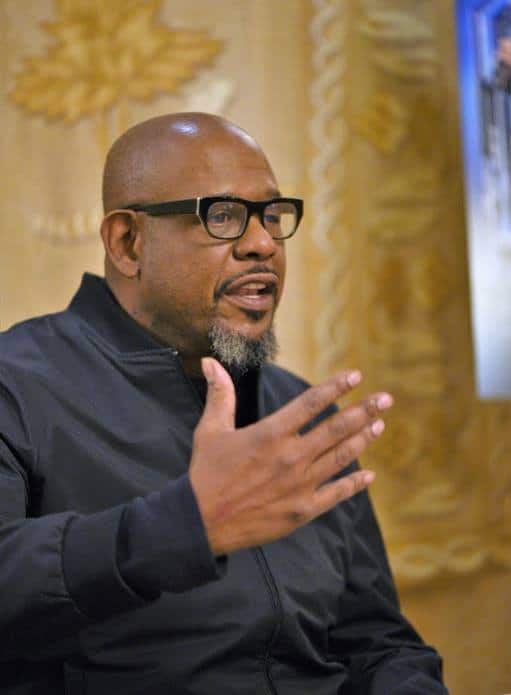
Q : Is there a superstition or a ritual before going into character? Did you always have this sort of smoothness about you?
FW : I'm always trying to do all the research. I mean, it's kind of similar, you know. I do the research and I start to study the different people and the things that they do and meet different people and get different voices worked on. And then slowly it just comes together. I don't know if there's a magic formula. At some point, I can say, the magic formula for me is, at some point, I just surrender, I just like, say, okay, this is your space, and let's make it happen and do it. You know, and I believe. And that's kind of the magic formula I'd want to have.
Q : What was it like off camera working with the rest of the cast? In my mind I kind of picture you as the leader.
FW : There was actually -- like, the Wakanda Falls was really interesting, because they were playing music, and the drummers would continue to play a lot between the takes. People would start singing and stuff, so it was like, a real communal experience. Even when we weren't working, you know, a guy would start leading them in songs, and, you know, J'bari would come out. [LAUGHS] And it was something unlike any other, I think.
Q : This was very different from the other films that you have been on?
FW : Yeah. It was. It was -- I mean, I had just finished the film that was about the KKK, and it was a true story, and I was doing all my research and learning about what I needed to know to play this preacher. I studied being a preacher, I studied to understand how to express myself. I can't compare the two experiences. One was like, him, this guy, trying to like, protect his family in the South, and, like, having to deal with this Klansman that he brings into his home, you know, and so that becomes like, a very tight community. Every experience is really different. Every movie that I do, most of the time, is different, and then when it starts to get too similar, then I know that there's something wrong.
And if I can't feel a little fear about it, and I don't feel like I'm going to change or grow from it, then it's something wrong. Maybe I shouldn't be doing it. You know. And then I have to examine the reasons why, whether it's life, or, you know what I mean? [LAUGHS] Whatever I might do, the reasons could be.
Q : They always seem to put you in serious roles. Is there a role that you would like to play where you haven't done that?
FW : Oh. I don't know. I like comedy, though, yeah. I do like comedy. Who was that, the other day, somebody, was saying -- oh. I was working on...Empire, yeah. I had these comedic scenes, and stuff.
Q : You? [LAUGHS]
FW : Yeah, a couple of 'em. And so they were like, "Oh, you can do comedy." But I'd done a couple of comedy movies, I mean, I did 'em a long time ago, like when I did Rage in Harlem, and stuff like that.
*at this point, I yelled out that I saw that movie WAY before I was the appropriate age to see it, and it really left a mark on me. HA! As an adult, it also let me know that Forest Whitaker is REALLY good at not breaking character when it comes to questionable pictures hanging on walls*
Q : Could you see yourself doing any other role in this movie?
FW : {pregnant pause} I think Ryan cast me right.
Q : If you had to choose one scene in the film that was the most impactful or powerful for you, what would it be?
FW : Oh, I'm sorry. That's really hard, because I love some of the stuff that the...I think it's really interesting, like, just made me think, you know, when Killmonger is at his crossroads, because Killmonger is like, represents a lot of youth who like, get put in bad situations, and that like, informs him. He could have been a king, but instead he's like, fallen, and he's there, and he's talking about incarceration, and he says, you know, "I'd rather die than be incarcerated, to take away all my freedom. And I think there's something -- I don't know. I -- it makes me want to -- it makes me get emotional, even thinking about it right now.
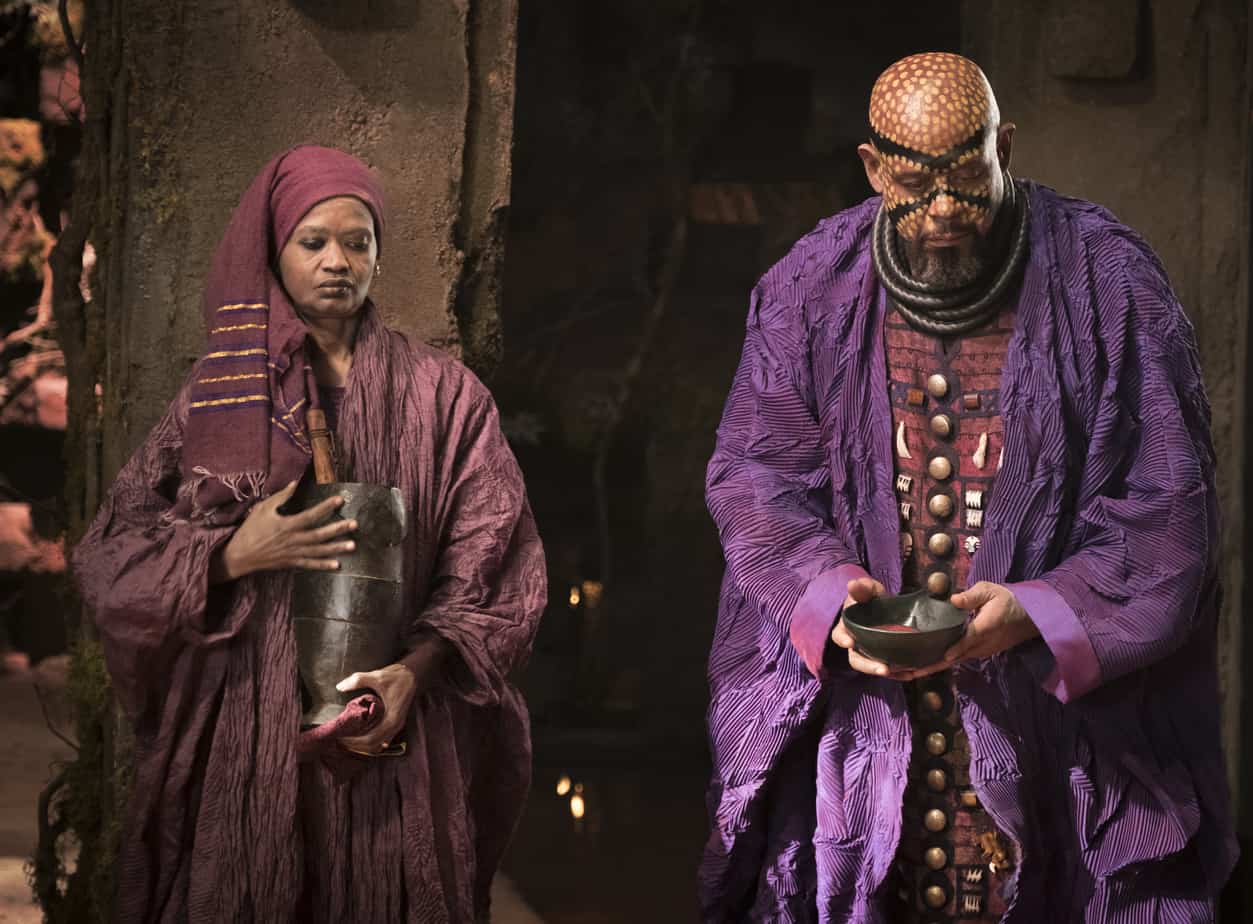
Marvel Studios' BLACK PANTHER..Zuri (Forest Whitaker) ..Ph: Matt Kennedy..©Marvel Studios 2018
Q : What were your thoughts after watching the film on premiere night?
FW : [LAUGHS] I was blown away by the film. You know. I mean, I guess I didn't -- I don't know if I expected all of the humor, and all the emotion, and all of the messages. You know. So, I was still trying to process it. I realized that I need to go see the movie a couple of times.
*you all definitely need to see the movie more than once. You're going to laugh so loud at certain parts that you'll miss some dialogue, so just get your second showing's tickets already*
Q : What messages do you hope viewers take away from this film?
FW : I think the message of female empowerment, you know, just both physically and mentally, and just the power that that expresses, and I think this message, too, like I say, about Killmonger, about our youth, and how we're molded by our environments, and how we have to step in and try to move those things forward.
I think you know, there's other messages, too, you know. Colonialism. And, you know, all of those kinds of things. Finding your own voice, you know. Empowerment. Because I think the movie, like, deals with empowerment, you know. Particularly for people of color, but for everyone. I was -- this is -- it's a lot of messages in the movie. So, you know. Those are some of 'em.
Q : Did you find yourself mentoring anyone in particular or giving advice?
FW : [LAUGHS]. I think Angie and Letitia had a strong relationship, you know. But I wasn't there very long. I was working on two other movies, one before and one after, and I just kind of got to come in quickly and do my work, and then I left, so I didn't get a chance to spend real time. I probably was there the shortest period of anyone, yeah.
Q : What's next for you?
FW : Well. I have a few films coming out, and so I think I'm going to let them come out. I'm gonna let Burden come out, which we just talked about. I just produced one, we just had one at Sundance, called Sorry to Bother You. I think we're going to see that come out. I did this movie about Desmond Tutu, where I played Desmond Tutu, and I’m just going to wait for it to come out, you know. And of course, I'm waiting for this one to come out, and then Saving Steve McQueen. So, I just -- I think I just like, need to sit still for a second.
It's a great pleasure.
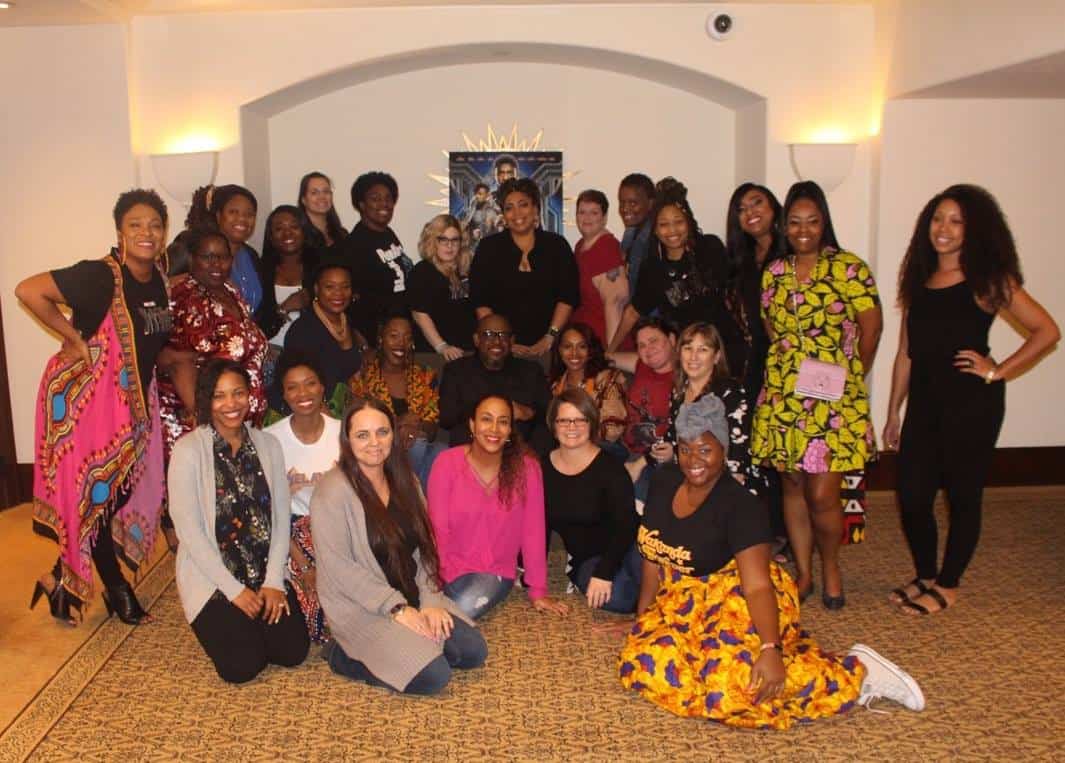
Thank you so much to Forest Whitaker for sitting with us and letting us get a peek inside the filming of Black Panther, and what future projects he has coming up. It was a pleasure, and an honor!
Black Panther hits theaters everywhere on February 16!
